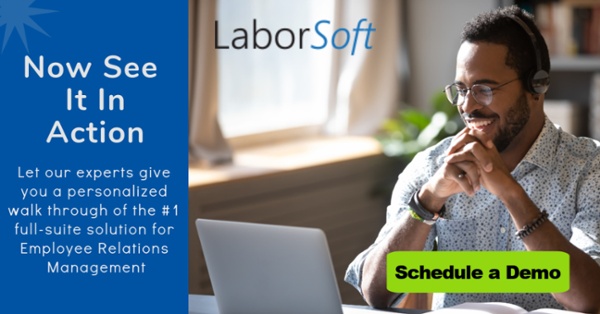Top 5 Goals of HR During an HR Investigation
Read Time 4 mins | Apr 16, 2025 | Written by: LaborSoft

An HR investigation is one of the most sensitive and high-stakes responsibilities that HR professionals manage. This is true no matter whether the issue involves discrimination, policy violations, or employee misconduct. In all cases, the legal ramifications can be enormous if things are handled improperly.
It’s paramount that your investigation process demonstrates transparency, neutrality, and attention to all legal and organizational standards. Each investigation is, in a way, a chance for your organization to build trust, avoid legal risk, and improve workplace culture. However, this only works when HR approaches each step with clear goals and a consistent framework.
Below are five key objectives HR teams must prioritize throughout any investigation.
1. Ensure Fairness and Impartiality
Fairness cannot be assumed; it must be demonstrated in every step of the HR investigation process. Each party deserves equal consideration, and each fact must be treated with the same weight. HR cannot allow personal biases or workplace politics to influence outcomes.
To support impartiality, HR should apply consistent procedures across all locations and departments. Neutral investigators, standardized HR investigation questions, and clearly defined roles help avoid the appearance of favoritism or internal conflict. Teams should be trained to recognize implicit bias and maintain professionalism throughout each step of the investigation.
2. Protect Employee Rights and Confidentiality
Employees who are part of an investigation (whether they’re complainants, respondents, or witnesses) need the confidence that their rights will be respected and their privacy protected. These expectations are both ethical and a legal obligation. If the investigation leads to disciplinary action or termination, poor documentation or a breach of confidentiality can result in serious reputational consequences or litigation.
Thus, confidentiality protocols must be clear. Only those with a direct role in the case should access sensitive materials. A purpose-built HR case management software like LaborSoft can make it easier to apply role-based access restrictions and maintain a complete history of case activity without exposing unnecessary details to unrelated personnel.
3. Maintain Legal and Procedural Compliance
HR professionals must follow a combination of internal company policy and external legal requirements. Any sidestepping of internal rules reduces your organization’s consistency and can have consequences. However, it’s typically the external rules that represent the biggest risks to the organization.
Failure to meet outside regulatory standards during an HR investigation can easily trigger lawsuits, compliance audits, or government fines. Regulations such as Title VII, the Americans with Disabilities Act (ADA), and state-specific labor laws all require accurate records, fair handling, and consistent processes.
Thorough documentation in your HR case management systems will mean you have, when needed, a detailed set of records of actions taken, interviews conducted, and decisions made. This documentation is a vital layer of protection in the event that a case is challenged in court or reviewed by external agencies. If your team is still relying on outdated systems, you're leaving a gap where legal liability can grow.
4. Identify and Resolve the Underlying Issue
Every HR investigation must lead to a resolution, but checking boxes in your process won’t fix the issue alone. HR must approach each case with the goal of fully understanding the issue and correcting it in a way that prevents future occurrences. When similar problems tend to surface in the same department or location, that’s a good sign that an underlying issue needs remediation.
You could potentially track geographic trends or behavioral patterns with comprehensive HR case management software to reveal, over time, whether certain job sites or managers have a higher rate of grievances, complaints, or misconduct. This sort of visibility arms HR with the data it needs to respond with training, process changes, or oversight that addresses the root causes of these repeated issues.
5. Safeguard the Organization’s Reputation
Every internal investigation has the potential to become public. That risk increases when cases are mismanaged, dragged out, or perceived as unfair. Internally, morale can decline. Externally, brand trust can suffer.
HR should lead investigations with the same rigor and transparency expected of any business-critical initiative. A complete and well-structured HR investigation outcome helps demonstrate the organization’s commitment to workplace fairness and ethical conduct. Even when difficult decisions must be made, teams that communicate clearly and uphold professional standards preserve their credibility and reinforce a culture of accountability.
When HR professionals have access to the right tools and clear objectives, they are better equipped to conduct thorough investigations, protect the organization, and maintain employee trust. LaborSoft provides the infrastructure HR needs to manage sensitive cases, organize documentation, and reduce legal exposure from day one.
Explore how our HR case management software simplifies investigations, improves documentation accuracy, and strengthens compliance. You can also learn how our employee relations software and labor relations solutions help HR teams address issues before they escalate.


